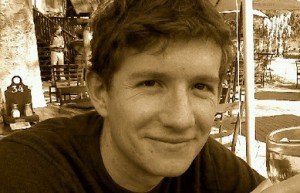Did she perhaps train to be a mechanic? A welder? Maybe a baker or candlestick maker? You'd think so, but no.

When a friend sent me a link to Social Development Minister Bathabile Dlamini’s Wikipedia page this week, he pointed out the deep irony that the woman in charge of overseeing the social grants system in this country would appear to be well qualified to do so.
After all, she supposedly completed an honours in social work at the University of Zululand in 1989, and passed with distinction.
I’ll let that fact sink in a little before continuing: the woman who spent the last three years resolutely ignoring a Constitutional Court ruling that she should find another way to pay social grants to the poor and vulnerable, or risk a huge crisis, is well qualified to be a social worker.
Government is often criticised for its cadre deployment, especially when the people who end up in critical positions requiring specialised skills don’t have those skills or any experience in the field concerned. Our former national commissioner, Riah Phiyega, was also a social worker, but it’s doubtful that helped her much in a job that requires someone who understands the ins and outs of fighting crime.
It certainly didn’t prevent the deaths of 34 mineworkers at Marikana in 2012, which Phiyega praised as fine police work.
But I digress. It seems that even when we are “blessed” with people who should be well qualified to understand the gravity of their work – such as a highly qualified social development minister – we still get short-changed.
Fast-forward to nearly 28 years after her degree with distinction, and our Constitutional Court justices gave Dlamini a resounding F in her chosen subject this week. You’d be forgiven for thinking she’d never opened a social work textbook in her life and was perhaps more of an expert in, I don’t know, rocket science? Heart surgery?
The court said on Wednesday it was considering a declaratory order to lay the blame for the crisis entirely on her, since she did nothing in the face of overwhelming evidence and years of warnings that the livelihoods of 17 million people would be at risk if she continued to simply ignore a Concourt order to find a different service provider or ensure that Sassa takes over the grants payments itself.
How could she not have lost sleep over this problem, they wondered.
On Friday, Justice Johan Froneman ordered that Dlamini will now need to submit an affidavit for why she shouldn’t be held personally liable for the expensive legal costs of having the matter argued in the Concourt.
That’s probably not going to happen, but how sweet it would be if Dlamini were to be asked to pay millions for her incompetence. It would be poetic justice if she ended up as broke as the people whose lives she was using in a game of legal “chicken”.
But no. Accountability is a dodo in South Africa, and it won’t happen. We were, after all, subjected to President Jacob Zuma yesterday defending Dlamini once again in parliament, saying she hadn’t yet been found guilty of anything.
Doing that mocking little shoulder and head dance we’ve come to associate with Zuma deriving great pleasure from doing something he knows will irritate the opposition, the president told us that “this is another kind of democracy that if you expect someone is going to make a mistake or is going to fail, that person must be punished before it happens. It’s a funny democracy.”
Obviously, he was once again conveniently missing the entire point. Must be nice to be Number 1. At least he can rest assured that we will never be able to make fun of anything he ever studied.
Zuma got one thing right, of course. This is a very funny democracy.

Charles Cilliers, Citizen.co.za digital editor
Support Local Journalism
Add The Citizen as a Preferred Source on Google and follow us on Google News to see more of our trusted reporting in Google News and Top Stories.






